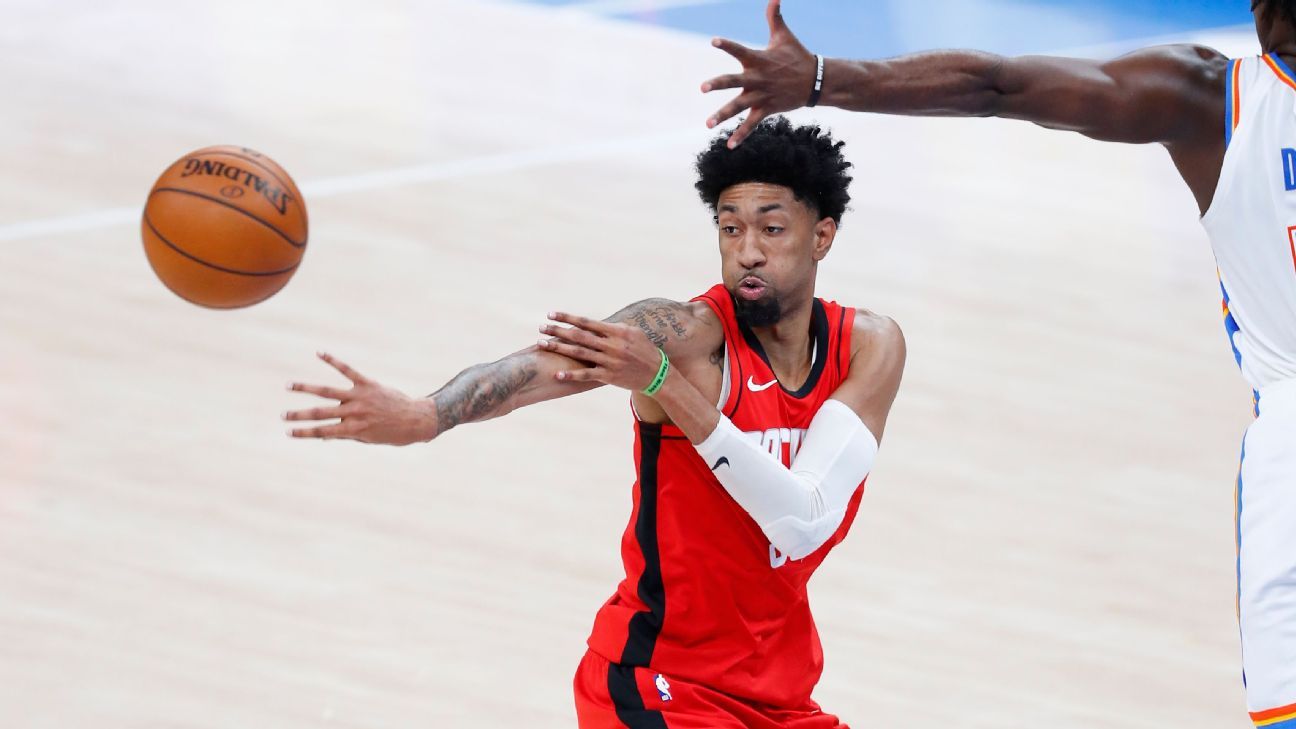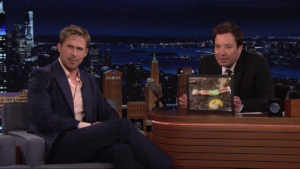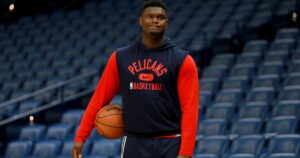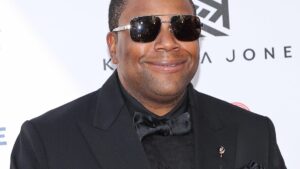How much will Christian Wood help fortify the Dallas Mavericks after their surprising trip to the Western Conference finals?
Not even three weeks after their season ended with a 4-1 loss to the Golden State Warriors, the Mavericks have agreed to an intriguing deal that adds a highly productive big man who has yet to get a chance to translate his skill set in a winning environment. (Wood has yet to start a game for a team that finished better than 33-49.)
At $14.3 million in 2022-23, the final season of his contract, Wood is a good value for the upcoming season. Still, trading four players for one will add to Dallas’ luxury-tax bill, which will skyrocket if the Mavericks are able to re-sign starting point guard Jalen Brunson as an unrestricted free agent.
How well will Wood fit in Dallas as the Mavericks aim to build a sustainable contender around star Luka Doncic? And what’s next for the Houston Rockets after dealing one of their few proven veteran players? Let’s break down the implications of this deal, which cannot be officially completed until after the June 23 NBA draft.
Mavericks get:
Christian Wood
Rockets get:
2022 first-round pick (No. 26)
Boban Marjanovic
Marquese Chriss
Trey Burke
Sterling Brown
Dallas Mavericks: B-

Adding Wood is an interesting response to Dallas’ run to the West finals.
Presumably, the Mavericks wanted to add another big man capable of stretching the floor. They had their most postseason success with Maxi Kleber or even Davis Bertans in the middle rather than starter Dwight Powell, who did not make a 3-pointer in their postseason run.
Like Kleber, Wood is capable of filling an increasingly important role in the modern NBA: playing power forward during the regular season than sliding down to center in the playoffs as teams downsize. Wood’s ability to both make 3s (he shot a career-high 39% last season on a robust 5.8 attempts per 36 minutes, nearly as many as Kleber’s 6.3 attempts) and provide a modicum of rim protection will give Dallas coach Jason Kidd the flexibility to play him with any of the team’s other frontcourt options.
The lingering question is whether Wood can be good enough defensively to excel at either spot. He can be stretched by smaller, quicker power forwards out on the perimeter and is a below-average rim protector. Over the last three seasons, opponents have made 63% of their attempts in the restricted area with Wood as the defender, according to Second Spectrum tracking, putting him in the bottom third of big men who have defended at least 500 such shots.
In fairness to Wood, we’ve never seen him in a defensive culture like the one the Mavericks enjoyed in Kidd’s first season as coach. The only time in Wood’s career he’s played for a playoff team, the bulk of 2018-19 with the Milwaukee Bucks, he played just 62 minutes as a deep reserve before being waived late in the season.
A year later, Wood emerged as an effective starter in a brief stretch between when the Detroit Pistons traded Andre Drummond and when their season ended early due to the COVID-19 pandemic. (Wood had 32 points on 14-for-18 shooting on March 11, 2020, then reportedly tested positive for the virus days later.)
An unrestricted free agent after the season, Wood went to the Rockets in a sign-and-trade to join James Harden, only to see Harden demand a trade. They played just seven games together, during which Wood averaged 23.0 PPG.
Wood certainly hadn’t been the solution for Houston’s problems over the last two seasons, particularly at the defensive end, nor had he been the problem. That context makes it difficult to evaluate how he might play on a contender, particularly in the playoffs — he’s never played in them before.
Wood’s offensive fit should be comfortable, provided he is comfortable playing less with the ball in his hands than he did for the Rockets. In some ways, Wood is the frontcourt fit with Luka Doncic Dallas hoped Kristaps Porzingis would become: comfortable keeping the paint free for Luka’s drives while also retaining the option of punishing mismatches down low.
Per Second Spectrum tracking via ESPN Stats & Information, only Minnesota Timberwolves center Karl-Anthony Towns (1.19) averaged more points per chance on at least 100 pick-and-pop plays last season than Wood (1.16). That’s convenient given Doncic ran the most such plays as a ballhandler (974) in the NBA during the regular season. Doncic and Kleber were a particularly potent pick-and-pop pairing, and Wood can do the same.
The cost to the Mavericks is both a draft and financial hit. Dallas has made just one first-round pick since adding Doncic in 2018 (Josh Green in 2020), a streak that will likely continue through at least 2023. This deal can’t be completed until after the draft because the Mavericks already owe a protected 2023 first-rounder to the New York Knicks from the Porzingis trade.
Although Dallas fans will point to the Mavericks’ poor recent draft record aside from 2018, which yielded both Doncic and second-round pick Brunson, that came under an entirely different front office and shouldn’t be taken as an expectation for future picks. Dallas will have to add some young talent to the mix, which means buying into the second round (the Mavericks also have traded their own second-rounder) and having success with undrafted free agents.
Including the first-round pick’s salary, the five players Dallas is sending out would have cost nearly as much in 2022-23 as Wood. However, the Mavericks still have to fill those spots, and doing so even with players at the veteran’s minimum would add more than $10 million to their projected tax bill — before re-signing Brunson. It’s been a while since Dallas has been a huge spender in terms of luxury tax, and it will be interesting to see whether Mavs governor Mark Cuban is ready to do so after the team reached the conference finals.
One possible money-saving move, particularly midseason, would be moving on from the popular Powell. He’s set to make $11 million in the final season of his contract and might not be needed for the playoffs if the Mavericks can cover the center spot with a combination of Bertans, Kleber and Wood.
Houston Rockets: B+

This move is much more straightforward from Houston’s perspective.
At 27 years old by the start of next season, Wood didn’t fit into the Rockets’ rebuilding plans, and getting value now was the way to go. As ESPN’s Tim MacMahon noted, dealing Wood clears room for Houston to start second-year center Alperen Sengun alongside a power forward drafted No. 3 overall — Duke’s Paolo Banchero, according to the most recent mock draft from ESPN’s Jonathan Givony.
Part of the cost for the Rockets is taking on a number of unwanted contracts. Trey Burke, Sterling Brown, Marquese Chriss and Boban Marjanovic played a combined 99 minutes during Dallas’ playoff run and all had guaranteed contracts for 2022-23, though no money that would affect Houston’s 2023 cap space. (Burke holds a player option, which he’ll have to exercise to be included in this trade. Doing so is a no-brainer; he’ll even benefit from a trade bonus worth $247,500 according to ESPN’s Bobby Marks.)
It’s unclear how many players from this deal will end up on Houston’s 2022-23 roster. The Rockets have 15 players under guaranteed contract plus forward Jae’Sean Tate, who has a non-guaranteed team option and is sure to be back. On top of that, Houston now has three first-round picks (No. 3, No. 17 and the Mavericks’ No. 26), meaning four players must go between now and opening night.
Surely, the Rockets have more moves in store. Eric Gordon and John Wall are the two remaining veterans on the team’s roster making more than $6 million. Gordon was a good mentor for the team’s young guards last season but might be rewarded for that service with a deal to a contender. Wall is a buyout candidate heading into the final season of his deal, which pays him $47.4 million, after Houston told him to stay home all last year.
This is still relatively early in the Rockets’ rebuilding process. If they use the division rival Memphis Grizzlies as a template, Houston now has the back-to-back high lottery picks in Jalen Green and this year’s No. 3 selection to match Memphis’ Jaren Jackson Jr. and Ja Morant.
A key part of the Grizzlies’ buildup was adding extra picks and nailing them, most notably with the selection of Desmond Bane 30th overall in 2020. The Rockets can dream Dallas’ pick produces a similar home run.



